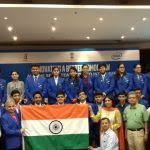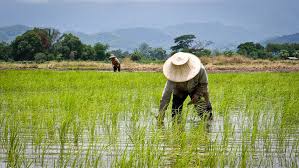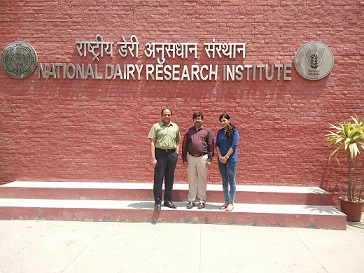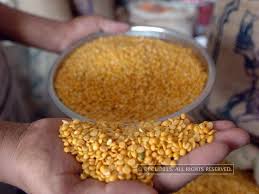C ycling is increasingly becoming popular as a sport. But incessant backache is a problem that a cyclist has to often contend with. Studies have shown that 45 per cent of cyclists in the world suffer from back pains, of which 23 per cent remain chronic.Presently, cyclists either opt for curative treatment through physiotherapy or undergo muscle movement analysis using expensive devices. A student from Mumbai has come up with a solution that seems to be quite promising. Kunj Dedhia of Dhirubhani Ambani Inter School will present his findings at a global meet being organized by IT major Intel at Los Angeles in the US this week.
Dedhia is not alone. He is among a group of 29 students who have been selected from different parts of India to participate in the meet following an intensive screening process. Called International Science and Engineering Fair, the meet is world’s one of the largest global pre-college science competition providing a forum for more than 1600 high school students from over 70 countries to showcase their research and compete for more than US dollars 4 million in awards. The winners will not only win laurels for themselves, their schools and their countries but they will also get an opportunity to get a minor planet named after them.

“Flag off for Indian boys and girls who are off to Los Angeles, USA, to participate in International Science and Technology Fair organized by Intel. ”
The 29 students will present 20 projects at the Fair: 11 projects are being presented by a single student each and nine by two students each.
Apart from Dedhia’s `Cyclos’, the other projects include brain-activated aids for disabled by Manan Rai of Amity Interschool, Pushp Vihar, New Delhi; a future phone by Mohammed Sharief of St. Aloysious Pre-University College, Karnataka, that would harness visible light and infrared for communication thus avoiding radio frequency waves, and a device for more effective use of wave energy from Sairandri and Sacheth of National Public School, Chennai.
The study has also found that hypertension adds to the risk of kidney disease. Three indicators of kidney disease were studied —presence of excess proteins (Proteinuria) and small amounts of albumin in the urine and the estimated glomerular filtration rate (eGFR) – a kidney function test. It was noted that adults with hypertension had a high chance of developing chronic kidney disease as indicated by the presence of proteins and albumin in urine and a low GFR as compared to adults without hypertension.
Sahiti Pingali of Inuenture Academy, Bengaluru, will present a crowd sourcing approach for monitoring freshwater bodies for water quality control, Sartak Sethi and Mohd Faiz of Maxfort School, Dwarka, New Delhi, will showcase a device which they named ThumbFi and which promises to help control multiple devices simultaneously with just one’s fingertips, and Siva Bharati and E.T.Ramkumar of NSN Group of Schools, Chennai, will present an inexpensive and eco-friendly method for raising paddy seedlings.
The other participants from India are: On solo basis: Chaitanya I Geeve of Little Rock Indian School, Brahmavar, Karnataka, Prakurti Kumar of Army Public School, Bengaluru, Prashant Ranganathan of Carmel Junior College, Jamshedpur, Rochan Avlur of AECS Magnolia Maaruti, Karnataka, Sayti Bendre of J.S.S.Public School, Bengaluru, Shinjini Ghosh of South Point High School, Kolkatta, and Swasthik Padma of Vivekananda English Medium School, Karnataka.
Two member teams: Shamay Samuel and Renasha Mishra of Delhi Public School, R.K.Puram, New Delhi, Samriddhi Vishwakarma and Shresth Agrawal of Bharatiya Vidya Bhavan, Raipur, Suhani Jain and Divya Kranthi of Taywade College, Nagpur, Tanya Goel and Harsh Jain of Maharaja Agarsain Public School, New Delhi and Jaskaran Sethi and Aparimeya Taneja of St. Columba’s School, New Delhi. (India Science Wire)




